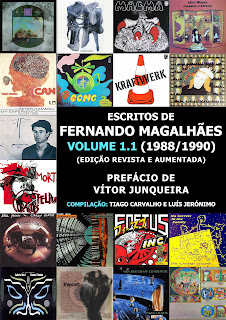editora: Korm Plastics
nº de páginas: 138
isbn: N/A
data: 2021
COIL
THE
ABRAHADABRA LETTERS BY JOHN BALANCE, 1984-1988
Maldoracca,
The Hague 2016
KORM
PLASTICS
Second
edition 2021
Introduction
It does
the dead no service to leave them mute, buried and gone. Artists in particular
are not a category of people crying out to be silent. While obviously we cannot
resurrect anyone whole and intact, we can at least commune with them through
their words, images, and sounds. In the case of John Balance (aka Geff Rushton,
Jhonn, and various other pseudonyms) we’re faced with a prime candidate for
such a treatment given the limited quantity of his writings to emerge during
his lifetime, as well as the enticing breadth of his interests, particularly
across the period 1984 – 1988 covered by this volume.
Most
professional musicians, it must de said, are not especially fascinating
creatures. In the majority of cases, there’s the usual stock of tour stories,
party tales, hard luck dramas and soap operas; supplemented by functional
accounts of the logistics and requirements of their specific mode of
employment. This is not true of Balance. What made the difference is that,
whereas most musicians engage with the practical requirements of earning a
living, the independent income earned by Balance’s partner, Peter ‘Sleazy’
Christopherson, meant that it was only after the turn of the century that
touring became a key part of Coil’s income and Balance never had to seek other
employment.
Blessed
with time, Balance’s day-to-day existence was akin to that of the aristocratic
writers and explorers of the 19th century. From Coil’s base at 14
Beverley Road in the leafy London suburb of Chiswick, a stone’s throw from the
River Thames, he was able to delve into topics of interest and process them
intensely until each line that emerged within Coil’s work was a tight knot of
visual and intellectual references. While Christopherson was out – often away
abroad for weeks at a time pursuing his career as a successful director of
music videos – Balance shouldered the efforts involved in Coil as a business
entity, and as a conceptual unit expressed via fanzines, mainstream
publications, and in personal letters to interested parties.
Published
as a limited edition volume in 2016, The ABRAHADABRA Letters, sits in the
lineage of archival works such as The Letters Of William S. Burroughs that
provide a less mediated and more ‘of the moment’ view of an artist’s fixation
and investigations. Within these 80 – or – so pages, Balance dashes off vibrant
missives regarding the multiple concerns of his existence, everything from the
ongoing disruption caused by his (and Christopherson’s) departure from the
group Psychic TV; both more and less successful attempts to release new music;
Coil’s unwillingness to perform live; his pursuit of artefacts and writings
related to various artists and writers; less than satisfactory relationships
with the music industry; magickal and ritual practices in his life. It´s a
cornucopia of diverting thoughts and snapshots for further exploration.
What is
noticeable is Balance’s relatively introverted nature even at a relatively
young age – the letters follow his activities from 22 to 27 years’ old. He
comes across, to some degree, as hermitic, something of a bookworm, busying
himself tracking down Aleister Crowley first editions, Austin Osman Spare’s
handwritten annotations, making positive asides on the writing of Victor
Neuberg… Then, suddenly, the doors are flung open and gives thrilled accounts
of visits to other countries and cultures, all rendered in concise electric
detail. As a perfect example, the book ends with a postcard in which Balance
displays his talent for seeing the macabre, the humorous and the suggestive wrapped
up within day – to – day encounters.
Of
course, if one watched only the surface detail of pop culture or our modern
social media one might expect significant figures only spend time partying in
public – life as a highlight reel. The letters are far more honest portrait in
that the time alone and the ways in which that time was filled are vividly
portrayed, as is Balance’s more sociable side. Characters as diverse as The
Butthole Surfers, David Tibet, and William S. Burroughs crop up as correspondents,
old friends, companions on nights out. The letters allow us to see multiple
facets of his identity, not just as a frozen figure processioning past a
shifting backdrop of events – Balance is interesting because of who he was, not
just where he was or who he was with.
Elsewhere,
there’s a glimpse at the top of one letter of Balance’s intense approach of
word-play. Just a few lines long, he twists and connects phrases, sounds,
ideas, letting them unspool as simultaneous insight and nonsense until he might
extract a golden thread of thought or phrase. I’ve seen this some approach
elsewhere, a full page in which every last white space was filled in with
sentences that crested and crashed in great sways and curls. A further bonus,
we also see examples of Balance’s likeably naïve sketches something rarely seen
in his lifetime. For me, The Abrahadabra Letters are akin to Coil’s
many-pointed Chaos Star emblem, a compact centre exploding outward in many
directions that one can choose to follow.
Anthony
Blokdijk, like Balance, had gone through his own awakening courtesy of
Throbbing Gristle, than a brief involvement with Thee Temple Ov Psychic Youth.
After departing TOPY, Blokdijk’s continued friendship with David Tibet led to
him visiting London and encountering Balance. Bonding over a love of books,
Balance helped track down Austin Osman Spare works in London for Blokdijk
(undoubtedly fuelling his own burgeoning interest in Spare across those years,
very much the icon who replaced Crowley as his guiding light), while Blokdijk
hunted for Salvador Dali-related items in The Netherlands to support Balance’s
fervent fandom.
The
book’s title, The Abrahadabra Letters, stems for the Dutch periodical Blokdijk
ran for 14 issues between 1985-1990. Focused on esoteric and magickal topics,
the first three issues come with cover imagery drawn from Egyptian mythology,
after which the magazine shifted to feature a specific theme per issue: sex,
conspiracies, Technology, Spare, Crowley. An initial burst of energy in 1985 –
1986 saw five issues per year after which it became sporadic: one in 1987, two
in ’88, the last in 1990. Clean production values, quality artwork, and the
depth and specificity of its content made Abrahadabra a late peak in the era of
self-produced zines.
At the
same time, Blokdijk lobbied and negotiated with interested parties in Holland
to try to arrange the release of a Coil single. He was also writing for a range
of Dutch music publications and was able to get Coil highlighted in various
locations (specific articles are included herein). A recording of an extensive
interview conducted with Balance, with contributions from Stephen Thrower and
Peter Christopherson, is still in Blokdijk’s possession and, by the time you
read this, I hope you may had opportunity to hear or read it. Blokdijk also
published an official translation or William S. Burroughs’ influential text
Electronic Revolution to which Christopherson contributed artwork, while
Balance gave a foreword. This is significant to scholars of Balance’s work as
one of only three places of extended prose he published in his lifetime – the
others being as essay on ‘The Exploration of Sleep’ – excerpted in the Peyrere
compilation of 1986, then in full in the magazine Hang Loose With Coil in 1987
– then ‘AOS: Artist, Occultist, Sensualist’ from the exhibition catalogue of a
Spare gallery showing in 1999.
A
regular guest to Threshold House – the nickname of Coil’s Chiswick residence as
well as of their record label from 1987 onward – a visit in late 1988 caused a permanent
rupture. As recounted by Blokdijk, Balance was in a manic state brought on by a
significant level of amphetamine consumption, spent the majority of the visit
trying to source a further supply, and refuse to share which left Blokdijk –
also no stranger to chemical stimulation at the time – fairly grumpy and keen
to head home, especially given a pointed and sharp non-farewell from Balance.
Heightened states, a period of over-indulgence, unresolved mental health
issues, it’s understandable why small snubs led to the cessation of
communication.
In that
sense, the book is a memorial marking the end of the relationship, however,
more positively, what is recorded in the pages is both individuals’ desire to
create, regardless of reward or recognition, to place their energies behind
things they loved and appreciated – including each other. In that respect, I
can imagine no better home for The Abrahadabra Letters than with Frans de
Waard. De Waard’s father, a classical music lover, dubbed his son’s taste ‘Kapotte
Muziek’ – ‘broken music’ – and De Waard paid defiant tribute to that dismissal
by using the phrase to christen his first musical project. This gave early
notice of a lifelong commitment to independence visible in his music-making in
all its guises, in his magazine Vital Weekly which promotes some of the most
uncompromising sounds imaginable, and his label Korm Plastics which has helped
spread the curious and unique visions of numerous artists.
Wise
words from the departing, remember to say ‘thank you’. Thanks to John Balance
for his appetite for knowledge and to Anthony Blokdijk for allowing this
glimpse of a rare mind.
Nick Soulsby
Second
Edition
Korm
Plastics
Website:
http://www.kormplastics.nl
E-mail: info@kormplastics.nl
© 2016
Maldoracca & Anthony Blokdijk
© 2021m
Korm Plastics & Anthony Blokdijk
Design:
Alfred Boland
Printed
in EEC
































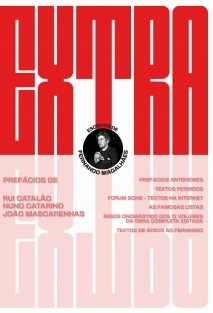
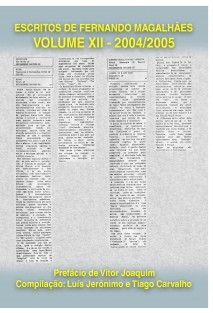
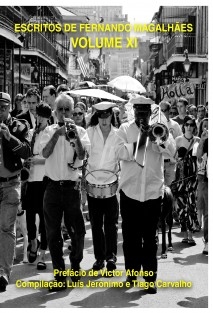



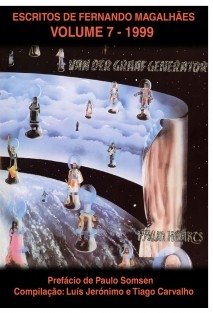
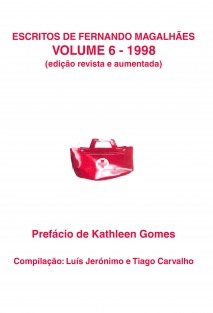
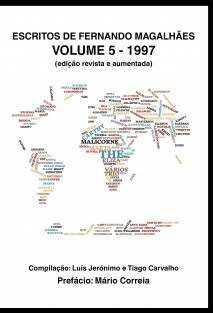
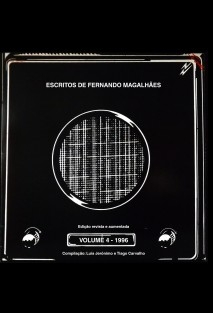
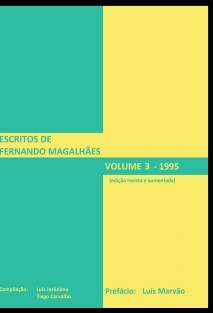

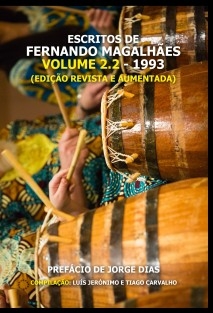

_Bubok.jpg)
